We are living in uncertain times, and you never know when the stores are going to run out of food. Therefore, it is always a good idea to make sure you’ve got plenty of food in your home just in case. It is not uncommon to assume that canned food can be stored for several years, this is true with some canned food, but not with all. It is extremely important to know which canned foods you can’t store for long periods of time because the ones that can’t, will not only ruin the meal you are trying to make, the toxins in it can make you ill. Here are 10 canned foods you should not store.
1. Eggs
Eggs can last for around one week on the shelf, and for approximately 3 weeks in the fridge. Freshly laid eggs come with a protective coating, called a “bloom,” which prevents bacteria from harming developing chicks. You can store them in a cool dark place for a couple of weeks. If you wash your eggs, they must be refrigerated. You can also try to make powdered eggs or an easier method would be to coat them with mineral oil.
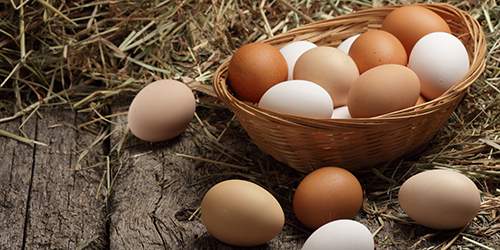
2. Nut Oils
You can’t keep nut oils for long periods of time. When a bottle of oil is opened, the oxidation process begins. After a while, not only does it ruin the flavor, when the oil is heated, it can produce dangerous chemicals. It is best to buy small bottles of oil so that you will have used it all before the oxidation process takes over.
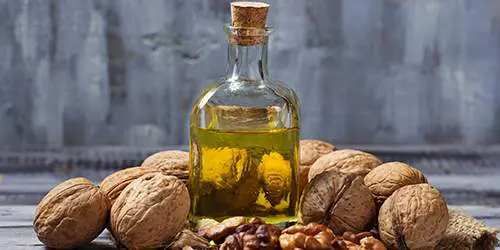
3. Homemade Jerky
Homesteaders love compact dehydrators, and jerky fans love them even more. Commercial jerky doesn’t come cheap, but with a dehydrator, you can save your leftover beef and make as much as you like. This is where the problem begins because you can’t store the leftovers for as long as you want. Commercial jerky is processed, so you can store it for long periods of time. Also, it is impossible to make jerky in the same way at home; therefore, if you’ve got any leftovers, your best option is to vacuum pack it and add a silica gel sachet to prevent any excess moisture.
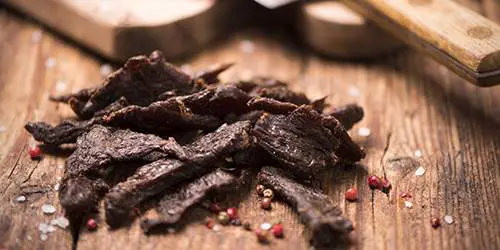
4. Canned Bread
Everyone loves canned bread, not just because it’s tasty, but because of how simple and convenient it is to make. It eliminates all of the back breaking work required for traditional baking. All you need to do is pour the batter into a mason jar and pop it in the oven. However, the problem is that due to the fact that a partial vacuum is created in the mason jar during the cooling process, the assumption is that the bread can be stored for years. Unfortunately, this information is factually incorrect, and it is actually dangerous to do so. Canned bread is moist, packed with nutrients and it contains very little oxygen. This creates the perfect environment for bacteria to grow and one of the most lethal toxins it produces is botox. Also, when this is combined with food, it becomes severely toxic.

5. Canned Tomatoes
Canned foods are popular in most households, but not all canned foods are made equally. You should avoid storing canned tomatoes because the ingredients in the juice break down the can over time. Sometimes the can will split at the seams, leak, or bulge, but there are times when there are no visible signs that the juices are attacking the can. However, what it does is create very small perforations meaning that the can is no longer airtight. A can that is not airtight is not safe, typically, you will know when you open the can because there will either be a rancid odor or the color won’t be the same. Once you notice these changes, throw the tomatoes out. If you really do need to store tomatoes, don’t keep them for longer than six months.
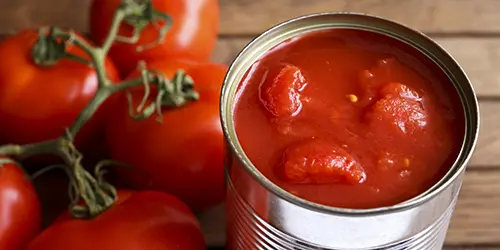
6. Graham Crackers
Crackers in general do not stay fresh when kept over long periods of time. After about a year, they turn stale and lose their flavor. The only way to store them for any longer than 12 months is to put them into an airtight container with oxygen absorbers, or a vacuum sealed package. Alternatively, if you can avoid having to store crackers, make your own whenever you want to eat them.
7. Breakfast Cereals
Even when breakfast cereals have not been opened, they won’t last for more than a year because the packaging is not strong enough to support its freshness for that length of time. The best way to ensure the freshness of your cereals is to buy a small box that you can eat in a couple of weeks. If you want a breakfast meal that will last for a long time, we advise that you buy oatmeal.
8. Canned Fat Meat
Regardless of the type of meat, storing it for long periods of time is never a good idea. Although canned meats are safer than the packaged kind, it is still not advisable. One of the main reasons for not storing canned meat is that the acid in the fat can break down the can. Additionally, the quality of the meat erodes over time and it won’t taste very nice. In particular, you can expect canned tuna to become mushy after it has been stored for several years
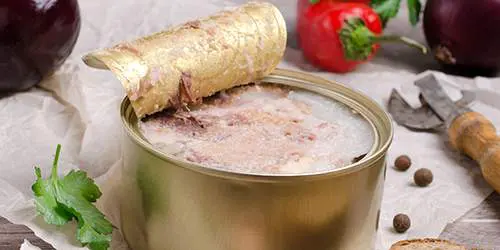
9. Baked Goods
If you are planning on baking, be sure to eat whatever you’ve prepared within a few days. The only way to preserve baked goods is to freeze them, otherwise, they will rot. It is not advised that you buy a lot of flour unless you are going to use it because it doesn’t last long.
10. Butter
Butter has a longer shelf life than the majority of dairy products. However, it is still not advised that you keep it for long periods of time. I don’t advise that you keep butter for longer than a few months, and during that time keep turning the can so that it doesn’t deteriorate.

Whatever tinned food you store, make sure it is kept in a cool dark place. Additionally, where you can, put your cans in airtight containers and this will stop any pests from attacking the cans. If you still have questions, get in touch with one of your local homesteaders and they should be able to provide you with some answers.
You may also like:
25 Powerless Appliances for Your Homestead Kitchen
What Happens When You Pour Sugar Into An Onion? (Video)
How To Build A Small Storage Shed From Pallets
How To Make A Pressure Sensor Pad To Know When You Have An Intruder On Your Property










I have never seen butter in a “can”. So I’m unclear what “keep turning the can” means.
Red Feather creamery is one brand I’ve seen (and have)
I think this article is far too conservative and over the top on several points. Been making beef jerky fir years now. Properky prepared I can make it last a long time….
This article is so far into the rediculous, I want to know where are the references that back up these claims. Not “prepper” references, but true, factual, scientific articles. I often keep eggs up to 6 weeks with al little dehydration but no spoilage, for example.
This is the worst list I’ve ever seen on this site, combined with a paucity of research so severe I can only assume that this list is intentional misinformation designed to cripple those willing to take efforts for the longevity of themselves and their families.
Any of the items on this list can be processed appropriately and stored SAFELY. This list should be removed immediately from this site.
Granted, things can happen to tomatoes or any food product. But this is waaaay on the far side of caution-run-amuck. I can see now that I have been doing this food thing all wrong for about 50 years now… LOL
I need to state up front that I do have a wonderful basement storeroom, so I have a nice cool dark place to keep large quantities of food, which does help the longevity a LOT, and not everyone is so fortunate. So there is that.
There have been many articles on this website about storing fresh (not commercially produced) eggs with mineral oil or even better lime water that will keep them ready to use for months. Probably won’t work on the kitchen counter – but in a cool dark place, if you are lucky enough to have a place like that. The “bloom” mentioned is what makes that work, and it is washed off on commercial eggs. Tomatoes “can” go bad, but so can water. Know how to store anything you want to keep long term, and rotate your stock!
This article makes jerky sound like something too dangerous to make yourself… I am apparently really tough, really lucky… or just too dumb to get sick.
Breakfast cereals don’t last over a year? What? Granted granola’s or anything with nuts added may tend to get stale or rancid more quickly, but even those can last quite a long time. But “may not be as fresh” is a long way from inedible when it is all you have with no option to procure more. If the packaging is not equipped for the long-term – that can be helped. Just one option could be a tub or plastic container of whatever size you need to hold them, maybe sprinkle a few O2 absorber packets in the tub…sure could stretch shelf life, right? (I’d probably get rid of the box and label the plastic bag it comes in to save space). SHTF events are going to be very hard on the pampered palates of the world, I am afraid…
I have bottled butter. I’ve rebottled commercial butter, and my own homemade butter. Pint or smaller jars are best for that, but it is quite easy and works great. I have no idea why “turning the can” is a thing, either. LOL And I regularly have commercial butter on my shelf in the basement (about 45-50 degrees year round). Not sure if I’ve had it there for over a year, but it wouldn’t surprise me. Same with cream cheese. We bottle a lot of meat, and we do try to rotate it. But we have found bottles tucked in corners that are more than a decade old, and they are just as good as the fresh ones. I have had a very, very few get lids damaged and the contents were ruined, but make sure the seal is still good, and it will last a very long time.
“Don’t buy quantities of flour”? All I am saying is forget that “Best Used By” date on the packaging. That is put there to cover the behinds of the manufacturers and get you to purchase more frequently. Don’t keep your truly long-term emergency storage in your kitchen cupboards, unless you have no other option. Probably too warm and maybe more humid than other parts of the house. Figure out where you can store things in the best environment you can possibly create to give it a chance to last longer. Something that is not at it’s absolute peak of freshness is different than NOT unusable. But something not at it’s absolute peak of freshness sure beats starvation in an emergency. Pack or repackage items to stretch it’s shelf life. And USE from your stash and replenish with fresh to keep it as current as possible. As mentioned, not everyone has a great storage place, but with some common sense and get creativity, many of the above items can be kept a lot longer than this article suggests.
glass mason jars and rotate jars using the oldest first
I totally agree with yo
Do a you tube search on dry canning. Flour, cornmeal, pasta, rice, crackers can be dry canned and stored for years. I recently opened a jar of saltine crackers that I canned over a year ago and they were just as crispy and fresh as the day I canned them.
Even nuts last decades this way.
Much of this information is inaccurate. (from a Master Food Preserver)..Please check out other sources.